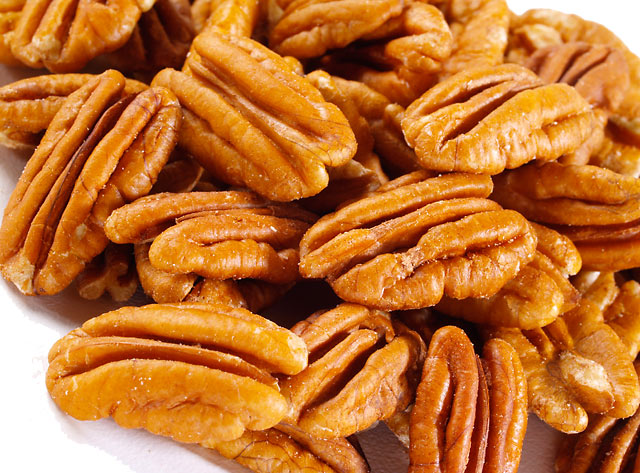
Advertisement
Some people might think that a snack can’t be both healthy and satisfying. But ideal snacks do exist — take nutrient-rich pecans, for example.
The superfood nuts known as pecans come from the fruits of a hickory species found in Northern Mexico and the southern United States. Today, this species of hickory is widely cultivated for its seed; in fact, the US supplies up to 80 percent of the world’s pecans.
Pecans are well-known for being the main ingredient of pecan pie, a popular year-round dessert and Thanksgiving staple. But what many may not know is that pecans are nutritional powerhouses that offer a variety of health benefits.
Whether as a snack, condiment or ingredient, here are some reasons why multi-purpose pecans make great additions to a healthy diet.
Pecans contain plenty of antioxidants and nutrients
Nuts like almonds and walnuts are known for their massive antioxidant content, but nothing beats pecans. In fact, studies suggest that pecans have the most antioxidants among nuts. Pecans also contain more than 19 vitamins and minerals, including vitamins A, B (folate and thiamine) and E and minerals like calcium, potassium, magnesium, phosphorus and zinc.
Pecans can enhance immunity
Eating pecans can boost your immune system and protect you from common illnesses. Zinc, for example, is crucial to the development and proper function of your immune cells. It can also lower your risk of developing lifestyle- and age-related conditions. Meanwhile, the antioxidants in pecans help fight free radicals that cause oxidative stress. Oxidative stress is a key factor in the onset and progression of serious conditions like cardiovascular disease and cancer.
Pecans are rich in flavonoids
Flavonoids are active plant compounds present in pecans. They are known for their antioxidant and anti-inflammatory activities, among other things. According to studies, flavonoids can not only help prevent diseases like diabetes, they can also protect the brain from cognitive decline. Flavonoids can even help people maintain a healthy weight, so snacking on pecans may be a good idea if you’re aiming to lose weight.
Pecans can support heart health
Like other nuts, pecans are rich in fats — the good kind. They have high levels of monounsaturated fats, the same type you’ll find in healthy olive oil, sunflower oil and avocados. Despite being fats, monounsaturated fats don’t elevate your cholesterol levels — in fact, they help regulate the amount of bad cholesterol in your blood. Pecans also contain vitamin E and beta-carotene that mitigate the effects of chronic inflammation, a key factor in the development of heart disease. These make eating pecans good for your heart.
Pecans contain very little sugar
Too much sugar is bad for you, whether you have diabetes or not. Pecans do not have a high sugar content, which makes them ideal for guilt-free snacking. Eating pecans can even help you control your blood sugar levels and prevent blood sugar spikes.
Pecans help maintain healthy cognitive function
Your brain can lose its ability to function optimally as you age. The vitamin E in pecans is great not just for your heart, eyes and skin; it can also benefit your brain. Your gray matter is especially vulnerable to the effects of oxidative stress, which is linked to the onset of neurodegenerative disorders like Alzheimer’s disease. But antioxidants like vitamin E can protect your brain from oxidative damage that causes cognitive decline.
You can eat a lot of pecans and not be too bothered by your sodium and sugar intake, provided that they are raw, not roasted. Too much sodium can cause a variety of health problems, including kidney damage and cardiovascular disease.
Sources:
Advertisements







